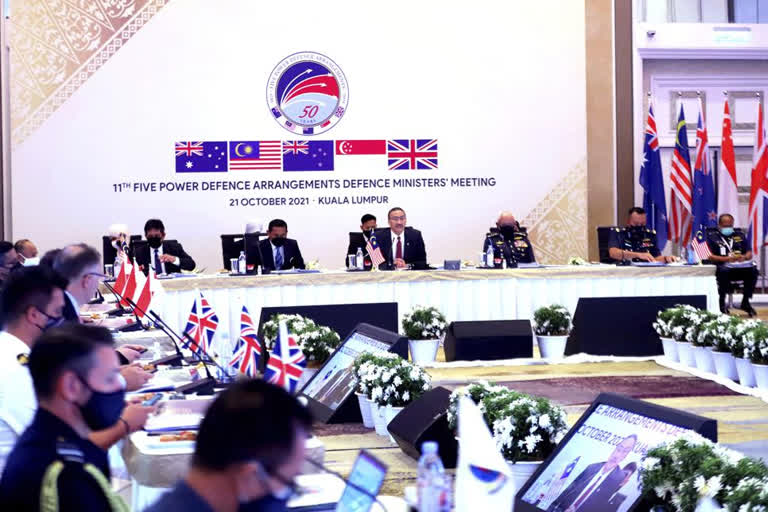Kuala Lumpur: Australia and Britain on Thursday defended their nuclear submarine deal with the US amid concerns it could escalate tensions in the region and spark an arms race.
UK Minister for Armed Forces James Heappey said there “has been a lot of overhyping” of the pact known as AUKUS. He said the UK and the US have been sharing such technologies for decades and that Australia's decision to join was merely to develop its own submarine capability.
The pact will provide Australia with nuclear reactors to power its submarines but the subs will not be nuclear-armed. It drew mixed reactions in the region, with Malaysia and Indonesia expressing concern it could escalate tensions in hotspots such as the South China Sea. China, which claims most of the disputed sea, slammed the pact and warned it would threaten regional stability.
Other nations such as the Philippines and Singapore suggested AUKUS could contribute to regional peace by helping to counterbalance China's growing influence in the region.
“It doesn't in any way reflect reduction in our friendships with colleagues and allies. It doesn't in anyway represent a challenge in your part of the world,” Heappey said in an online news conference after meeting with his counterparts in the Five Powers Defence Arrangements.
The FPDA, which involves Commonwealth members Malaysia, Singapore, Australia, New Zealand and the UK, is a non-binding treaty formed half a century ago. The countries are to consult each other in the event of armed threats or attacks on former British colonies Malaysia and Singapore.
Australian Defence Minister Peter Dutton agreed that AUKUS is “not a defence alliance or a security pact" and doesn't represent a shift in his country's defence strategy. He said the pact is aimed at improving Australia's defence capability and will complement its partnerships in the region, including FPDA.
Dutton said Australia has no intention of interfering in the operations of other nations, and will continue to maintain close ties to ensure the region remains secure and prosperous.
Malaysian Defence Minister Hishammuddin Hussein didn't comment on the AUKUS pact. Malaysian officials earlier said they were worried that AUKUS could provoke other powers to act more aggressively in the region, especially in the South China Sea. Malaysia has said it doesn't want to be dragged into the US-China rivalry.
While Malaysia and Singapore don't face any particular threats, Hishammuddin said the FPDA remains relevant and will continue to focus on issues such as counterterrorism, transnational crime and regional maritime tensions. The five nations earlier this week wrapped up an annual defense exercise involving ships, aircraft and 2,600 personnel to mark their 50th anniversary.
(AP)



